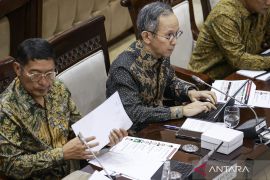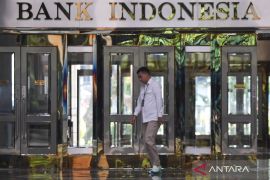JCR has changed the outlook on the Sovereign Credit Rating of the Republic of Indonesia and affirmed Indonesia’s BBB (Investment Grade) issuer rating on April 26, 2019, Bank Indonesia (BI) Communication Department Executive Director Onny Widjanarko noted in a statement here on Saturday.
JCR’s decision shows that the policy mix started by Bank Indonesia and the government is sound and projected to boost investor confidence in Indonesia’s resilience and economic prospects.
Furthermore, JCR shed light on various factors contributing to the change in outlook on Indonesia’s Sovereign Credit Rating.
Firstly, the Government of Indonesia has prepared a large-scale infrastructure development plan and is dynamically driving it to end infrastructure shortage, considered a bottleneck to economic growth.
The plan is progressing swifter than earlier expected by the JCR, and the economic base for expediting growth over the medium- to long-term is being fortified.
Secondly, the government has successfully expanded infrastructure and human capital expenditures and has worked towards lowering the budget deficit by decreasing fuel subsidies.
Thirdly, economic growth is expected to increase through ongoing reform initiatives.
Furthermore, Bank Indonesia has been streamlining its policy-response capacity.
Its policy mix comprising a cumulative 175bps interest rate hike since May 2018 and the relaxation of macro-prudential policies has fortified external stability.
In future, JCR harbors expectations of the government upholding its fiscal discipline to promote fiscal consolidation mainly in accordance with its plans.
Under its Medium-Term Fiscal Framework, the administration has declared plans to maintain the budget deficit at some 1.5 percent of the gross domestic product (GDP) while reducing the government debt to GDP ratio, from 29.8 percent in 2018 to 26-27 percent in 2022.
In addition, Indonesia’s banking sector has remained sound, with its capital adequacy ratio and NPL ratio recorded at 23.0 percent and 2.4 percent, respectively, at the end of December 2018.
The JCR had earlier raised Indonesia's Sovereign Credit Rating, from BBB-/positive outlook to BBB/stable outlook on February 8, 2018.
Reporter: Azis Kurmala
Editor: Suharto
Copyright © ANTARA 2019












